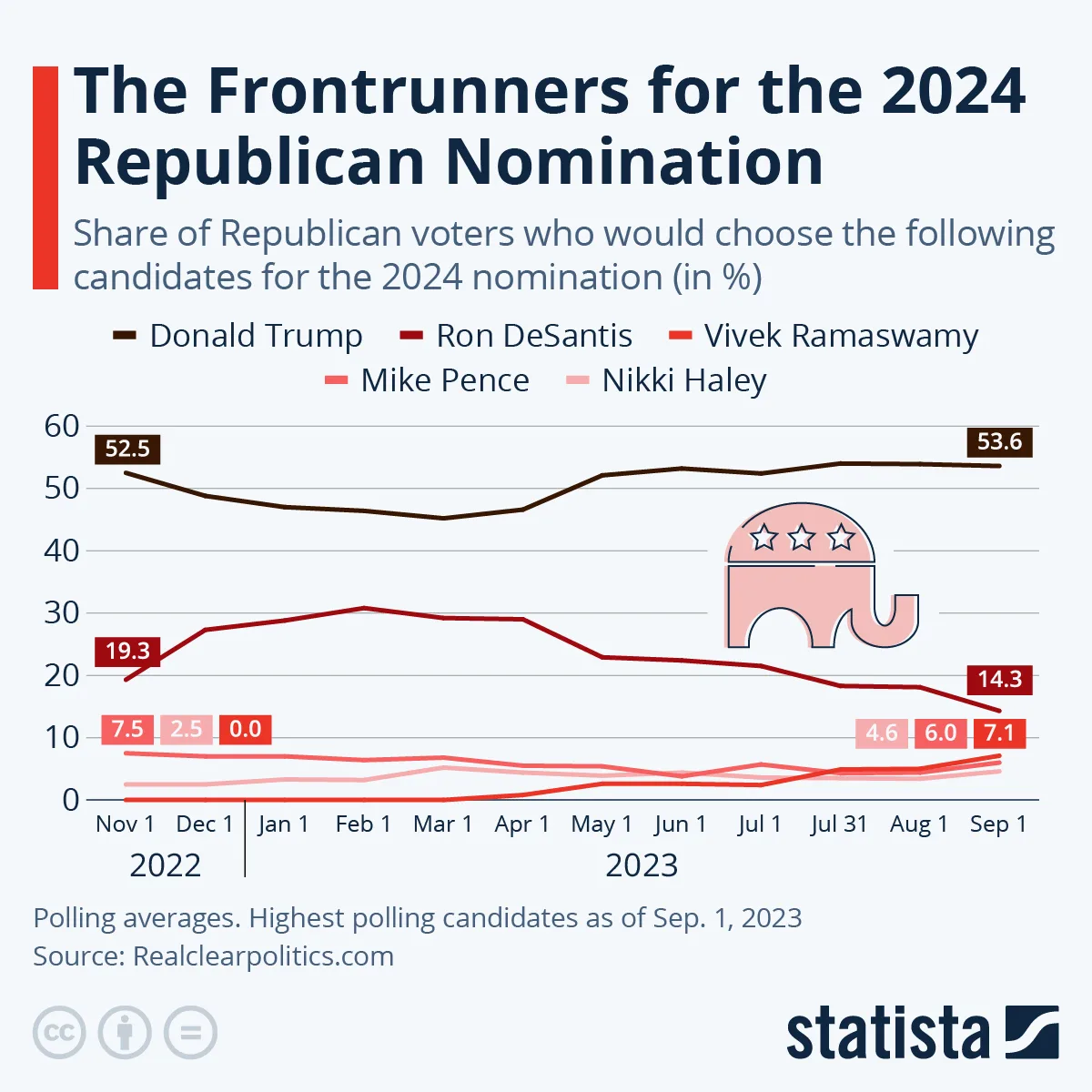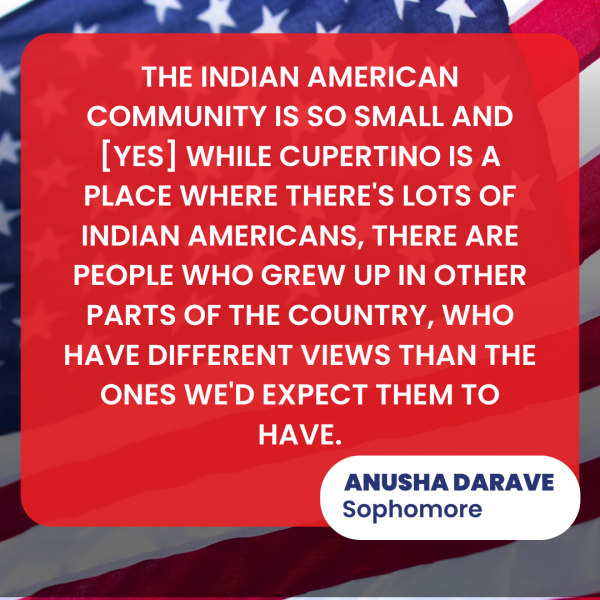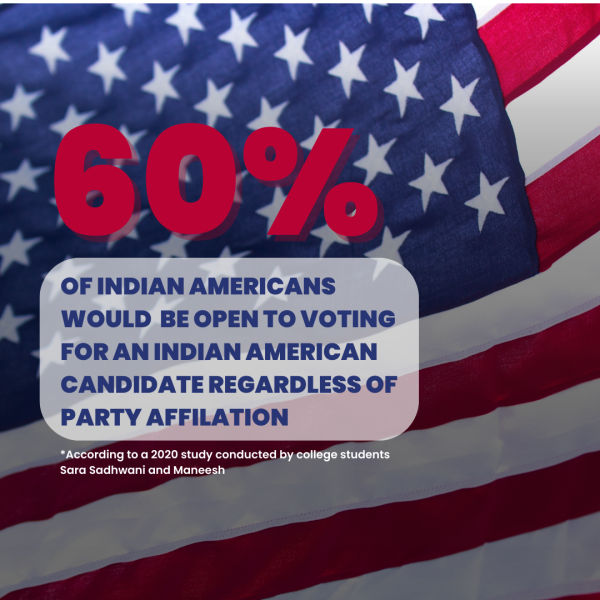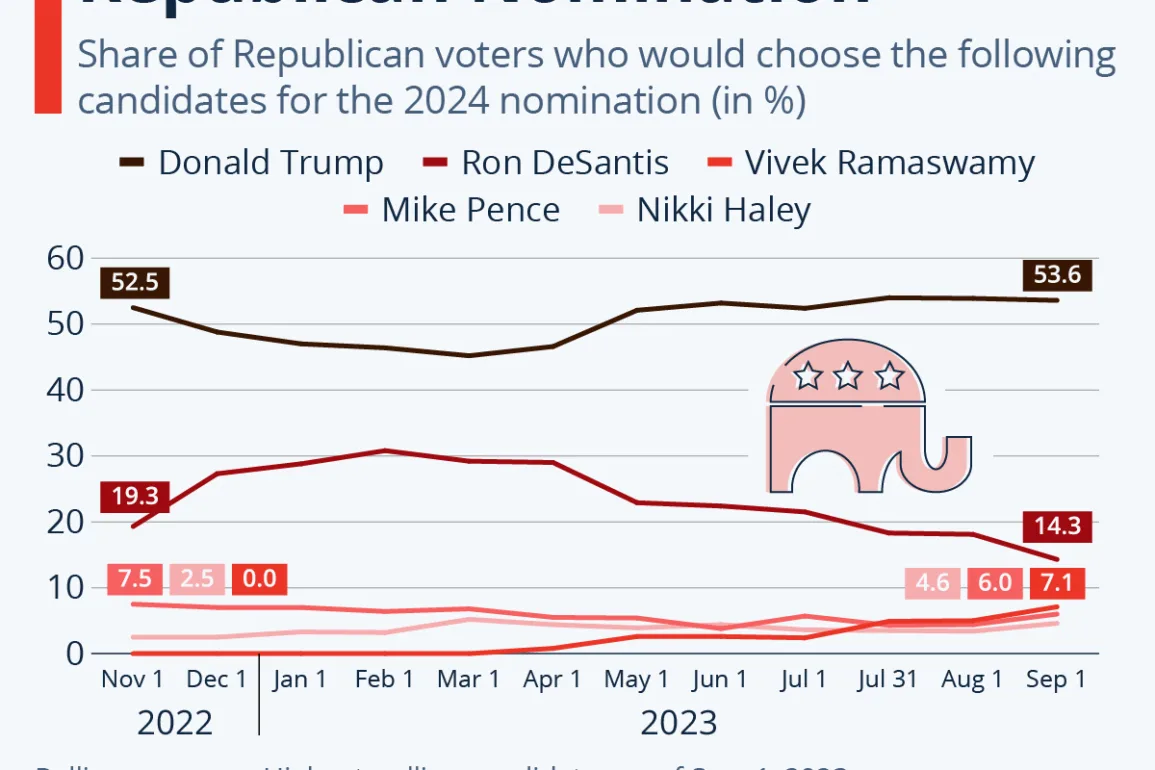With only 20 dollars in their pockets, senior Vedant Panjabi’s Indian-born parents immigrated to the U.S. 40 years ago. Panjabi says his parents raised him with morals of hard work, integrity and respect — morals he finds coincide with the ideals of Indian American and presidential Republican candidate Vivek Ramaswamy, who he plans on voting for in the 2024 presidential election.
Ramaswamy has garnered a majority of his wealth by founding his own pharmaceutical company and specializing in biotechnology and pharmaceutical investments by joining hedge funds. While Ramaswamy hasn’t held any prior political positions, Panjabi believes having a candidate without a political background and intense affiliation is refreshing and promising, and that Ramaswamy represents the voice of the common American.

“He was not inherently a politician,” Panjabi said. “He made some interesting comments or remarks that some people didn’t like but offered a very different and unique perspective, which I think appeals to a broad base of people. For example, he stands for reviving national identity through the need to implement a civics test. He wants to instill in people that this country is something much more than what it means to them and he wants to redefine the idea of what it means to be an American.”
On the other hand, while sophomore Anusha Darave understands that Ramaswamy’s occupational background may connect to many people in the Cupertino community, she says that young voters like herself value ideology and stances more than a common background. Indian-born Saratoga resident Vaishali Bhatt, 58, agrees as she hasn’t noticed any family members or friends voice their support for Ramaswamy. Both agree that while the Indian American community predominantly leans towards the Democratic party, this doesn’t necessarily align with the political stances of other Indian American candidates.
“Your political views are often reflective of how you view the world around you … and I think those opinions are developed from where you grew up to how you grew up,” Darave said. “The Indian American community is so small and yes, while Cupertino is a place where there’s lots of Indian Americans, there are people who grew up in other parts of the country, who have different views than the ones we’d expect them to have. I think his [Ramaswamy’s] political views are reflective of how he grew up, seeing the world in what he noticed while growing up, what he wanted while he was growing up, and I think that’s different for every single person regardless of heritage.”

While attending Harvard, Ramaswamy held a reputation as a staunch libertarian, even performing Eminem covers with libertarian focused lyrics. His anti-government views have evolved into extreme conservative ones, and Darave says a majority of students tend to be left-leaning and care about social issues.
“I initially thought that it was really commendable that there was an Indian American candidate, especially because it’s not a very represented community in government and politics,” Darave said. “But I also did try to understand what his stances on various issues were, and I didn’t agree with all of them. He has expressed wanting to raise the voting age, especially because his party doesn’t do as well with younger voters. He also wanted to reduce support for public education or continue drilling for oil when we’re faced with a really huge climate crisis.”
Darave believes Ramaswamy’s alignment with former president Donald Trump and his far-right views are extreme. However, Panjabi is an advocate for some of Trump’s policies that align with Ramaswamy’s, such as putting tariffs on other countries the U.S. trades with and limiting funds for international wars. He also sees Ramaswamy’s praise of Trump as a political strategy to gain potential voters, and he believes some of Ramaswamy’s policies that correlate with Trump’s ideals will simply remind Americans of their nationality and ingrain some patriotism.
“A lot of people say, ‘Well, oh, he’s gonna raise the voting age and it’s a ploy to stop young people from voting,’” Panjabi said. “No, I don’t think about it that way. He’s just trying to redefine what it means to be an American. He’s trying to revive our national identity, revive the pride in the American dream. I think he will make our country respected and the world standard to look at.”
However, Bhatt and Darave agree that Ramaswamy’s ideologies pushing for extreme nationalism are too alienating and would only divide the country more. Bhatt has noticed similarities in political divisiveness between her home country India and the United States, including tensions between religious groups such as Hindus and Muslims that she says weren’t as heightened when she was growing up there. Bhatt feels that when Trump was president, these same tensions were triggered between other ethnicities, such as the African American and Asian American communities. Bhatt fears that, with the widespread use of social media, Ramaswamy’s strict nationalist ideas will spread hate.

“Politics is very extreme now, partly because of social media,” Bhatt said. “People are just targeting people. Freedom of speech is very important, but nowadays, most of what’s being said [online] is crossing the line. What you say spreads everywhere. That social media just wasn’t there when I was growing up.”
Darave has noticed a similar pattern that she says has caused extreme divides on which presidential candidates are favored, with candidates being radical Republicans or Democrats. This is an issue that has caused Bhatt to not favor a specific candidate, and makes her worried that if Trump or Ramaswamy is elected, extreme laws and bills will be passed, rather than the candidates focusing on the general well being of Americans.
“In the current political climate, it seems like a lot of politicians, especially mainstream ones, don’t focus enough on closing that divide or making sure that all the American people can agree on something,” Darave said. “I think as we progress in this day and age, it just gets worse and worse.”
Although Ramaswamy isn’t the first candidate of Indian heritage to run for president, Panjabi and Bhatt consider him as the first ideal model of Indian American inclusivity in the modern state of American politics, even if Bhatt doesn’t support him. Bhatt believes members of the Indian community in the U.S. see candidates Kamala Harris and Nikki Haley as namesake Indians, since they’re only part Indian ethnically but they’re seen as candidates that represent Indian-American representation.
While Darave and Panjabi have a common ground on advocating for a candidate that would make an effort to better the country, their opinions differ on whether Ramaswamy is the one. While Darave believes the country needs a leader who will help combat pressing social issues, Panjabi says the country’s real epidemic is a lost sense of idealism in the American Dream.
“He represents them [Americans] very well because he has a vision for his life and he has a vision for this country and he knows how to execute that vision,” Panjabi said. “That’s why so many people look at his example and his story think he’s a great representation of what we’ve been looking for. If you believe in what you’re doing, you can create the life you want. Like a lot of our parents who immigrated to this country, living a better living, a better dream is something that they can relate to. He’s going to use his story and his message of hard work to appeal to not just the Indian American community, but the American people in general.”


